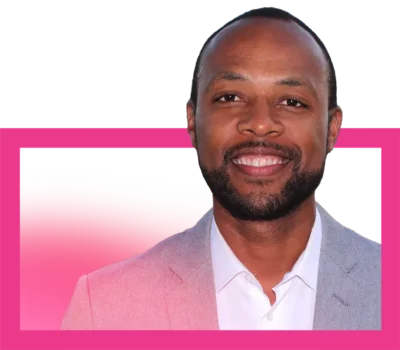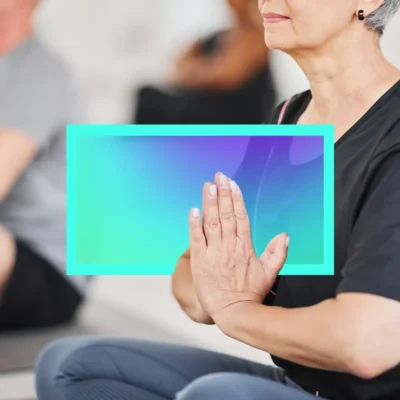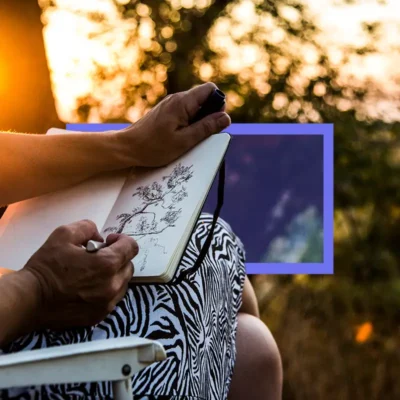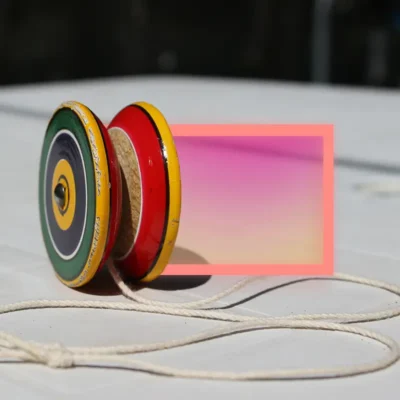Celebrating a life beyond the score
For the first 22 years of his life, Al Harris singularly focuses on one single goal: to play basketball in the NBA. Although he’s an elite young player, Al’s dream comes to an end when he’s passed over during the 2008 NBA draft. In the ensuing years, Al is recruited to play professional basketball throughout Europe, where he meets and builds bonds with a diverse group of people — which likely would not have happened if his “Plan A” had succeeded. Instead, Al learns that the experience of impacting others along his journey is what will result in a lasting legacy.

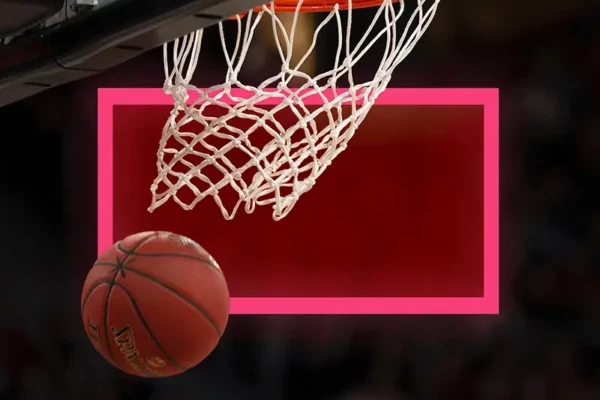
Table of Contents:
Transcript:
Celebrating a life beyond the score
AL HARRIS: Coach’s rules have nothing to do with basketball. He drills it into us: “Taking care of other people goes beyond this game of basketball.” We reach out to our fellow players; we create a family. Something shifts when I learn that “the we” is greater than “the me.”
ROHAN GUNATILLAKE: Growing up, Al Harris’ plan for his life is clear: become a professional basketball player, and create a legacy at the highest level of the sport. But then, at a decisive moment, he is passed over for the NBA draft; he won’t be playing at that highest level after all.
In today’s Meditative Story, Al looks at a life he didn’t plan for and uncovers how his true legacy is not in his accomplishments, but in the bonds he builds, every step along the way.
In this series, we combine immersive first-person stories, breathtaking music, and mindfulness prompts so that we may see our lives reflected back to us in other people’s stories. And that can lead to improvements in our own inner lives.
From WaitWhat, this is Meditative Story. I’m Rohan, and I’ll be your guide.
The body relaxed. The body breathing. Your senses open. Your mind open. Meeting the world.
HARRIS: As I step into the backyard, I feel the sun’s warmth on my face, I smell freshly cut grass, and I see a ton of 7-year-olds running around and playing. I’m only four, but I’m tagging along with my big brother Anthony to his friend’s birthday party. My brother’s cool, he runs around laughing and screaming with the other kids. I hang back closer to the house, tossing a ball with another shy boy by the pool.
This time, when he lobs it back the ball lands short in the water. I reach out without thinking. The next thing I know — splash! — I’m in the pool. I don’t know how to swim, but I’m calm. I see bubbles near the surface. I make out the movement of kids. None of them can swim either so they can’t get me. I squeeze out a couple of breaths, but then I start to sink. The sounds from above get quiet.
Out of nowhere a gigantic arm grabs me up by the shirt and pulls me out of the water. Dad’s been sitting out front, not wanting to leave the birthday boy’s overworked mom on her own. He fishes me out. I cough, I sputter. The wet denim clings to my skin. So does the embarrassment. After I change into dry clothes, one of the older kids walks up to me and says, “I’m glad you’re not dead, but now we can’t play outside near the pool. Thanks a lot, Al.”
After the pool incident, I obsess about dying. I lay in bed at night and wonder: what the heck does it feel like to be dead? Do I just go to sleep? Am I in the sky? Is there really a heaven?
At school, I read about my favorite president at the time, Abraham Lincoln (that was before we had president Obama). He freed enslaved people. He’s a great man, a hero, but he deals with my exact same fear. He comes up with a strategy for conquering death: to live a life so great that he’s talked about for generations and generations. To cheat death, in a sense, by building a legacy that will live on.
The thought is electrifying. If I’m talked about for generations, if I leave my own lasting legacy, then I too can cheat death. I decide to make that my plan for my whole life: Like Abe Lincoln, I’ll live a life so big — I’ll accomplish something so legendary — that I’ll live forever in people’s minds.
All my accomplishments center around the game of basketball. When I’m 11, I surprise my dad by knocking on his door morning after morning at 5:45 a.m., dressed, bag packed, and ready for him to drop me at the gym to practice. I dribble the ball in my front yard at all hours, every day. One night after sundown my neighbor hits a breaking point. She sticks her head out and screams at the top of her lungs: “Stop dribbling that damn ball!” I’m obsessed. I don’t have any other interests, I don’t even hang out with friends. At age 16, my favorite thing to do at 9 o’clock on a Saturday night is to shoot hoops. I take the game more seriously and practice harder than anyone I know.
Basketball becomes more than just an obsession. It’s a remedy. Whenever I’m scared or lonely, I just focus on basketball. When I get a bad grade on a science quiz, I shoot free throws. When the girl I like says no to a date, I go shoot some hoops.
All my confidence comes from the sport. I’m super competitive with my teammates, always fighting for a spot to play, and trying to score the most points every game. Coach sees this, and he does something crazy. He lays out an amazing set of rules for the team. He writes them down and hands them out to all of us. “If your teammate comes to school and he doesn’t have lunch, and you don’t share yours with them, that’s punishable on the team. If your teammate is doing something he shouldn’t and you don’t split it up and look after him, then you’re not a good teammate.”
Coach’s rules have nothing to do with basketball. He drills it into us: “Taking care of other people goes beyond this game of basketball.” We reach out to our fellow players; we create a family. Something shifts when I learn that “the we” is greater than “the me.”
Coach switches around my position. He makes me play point guard, and it’s not my best position. I score 10 points less per game. But I make plays for the rest of my team that turns everything around. Coach’s philosophy has us go from losing games to a 21-game winning streak. It lands us in the state championship at the Arco Arena in Sacramento. I look over to the opposing team’s bench: They tower over us. We’re heavy underdogs. The score remains tight throughout. We’re shoulder to shoulder, battling for the win. In the 4th quarter, I release the game-winning jump shot. The entire town erupts with joy. Big group hugs. We rush the stands full of family, friends, people from school and my home town. There is such jubilation from everyone. This old lady from the neighborhood comes up to me, smiling cheek to cheek, and asks me to cut down a piece of the championship net for her. Our victory touches so many more people’s lives than I ever would have imagined.
I’ve learned to think about “the we” before “the me.” But I’m still completely focused on my own goal, the achievement that will define my own legacy: becoming a pro basketball player. My entire identity is tied to the game. What other 16-year old kid is shooting baskets at nine at night? It’s my singular focus. Who am I without it? I don’t know …. There’s no “without it.”
I’m in a no-frills hotel room in Cleveland, Ohio. I’m here working out with the Cleveland Cavaliers. They want to get to know me to see if I might be a fit for their team. It’s NBA draft night. It’s like the Oscars for college basketball players, except with much bigger stakes: If my name is called as part of the program, I’m on the path to becoming a pro athlete. It will be the first of my true accomplishments. The thing I’ll be remembered for. If my name isn’t called, then my legacy is dead in the water.
I have good reason to be hopeful. The Golden State Warriors, the Los Angeles Lakers, the Phoenix Suns, the Houston Rockets, the Portland Trail Blazers, and others all invited me to work out with them so they can get to know me. At practice with the Los Angeles Clippers, I’m on fire. I don’t miss a single shot.
Now I’m watching the picks on television and trying to play it cool. I’m trying to fool myself into believing this is just a regular night of TV, and not the moment I’ve spent the past 22 years of my life preparing for. Sweat pools under my arms as I watch the announcers rattle off names of the chosen ones. These first picks are all guys I’ve heard of. Their lives are about to change. I won’t be called till closer to the end, when it’s time for the Clippers to announce their last pick. I have to force my breath steady.
The dinner I picked up on the way back after practice is getting cold. I’m not hungry. Now it’s time for the Clippers to announce their final pick. The name I hear isn’t mine. But there are still a few spots left in the draft. I can barely breathe. Again someone else. One name to go. It’s another player. My heart crumples in on itself.
How’s this possible? I worked so hard, for so long. I’ve done everything I was supposed to. I won a state championship. I was Player of the Year. I don’t party. And I treat people well, don’t I get to win? After 22 years of hard work, and after all these sacrifices, aren’t I the guy who’s supposed to get his goal?
I don’t have a plan B. I was always told that a plan B is just an excuse for plan A not to work. I focus everything on this one achievement. It was basketball or nothing. And now, it’s nothing. No achievement. No legacy. Nothing to be remembered for. How am I going to hold my head up? Who am I, even?
GUNATILLAKE: Al’s entire identity is wrapped up in his accomplishments. Having them not work out leaves him without grounding. I faced it. So many of us have. At this moment, tilt your head back, spine upright, chin up, jaw soft. On your next out-breath, let go of the accomplishments that define you. Just be.
HARRIS: Stark sunlight slices through the window. I lean over the windowsill and take in my surroundings. I’m in my new apartment, a nice two-bedroom in a tiny town in Poland, called Zgorzelec. I look outside. There are no sidewalks, no fences, just fields of hay. It seems like anyone can just build a house wherever there’s an open space. This isn’t how my life was supposed to be. I was supposed to be playing for an NBA team in Los Angeles, making millions, every game broadcast on national TV, and now I’m here. Playing for a Polish basketball team in a tiny village that has two streetlights, two intersections, and not much else.
My whole life, I’ve been climbing and climbing. Now, I’ve landed with a thud. Playing basketball in Europe isn’t an achievement. It’s a consolation prize. I don’t even fit in here. I look so strange to everybody — this six-foot-six Black guy. And being here, filled with shame, I feel even stranger myself.
Staring out my window in Zgorzelec, an old woman with a kerchief wrapped around her head hangs her laundry from a clothesline with clips. How does a kid from Oakland who barely traveled out of the state land up here? Time slows down. I wonder when I’ll see my parents and friends again. The old woman catches eyes with me and gives me a puzzled look, something I’d receive often in the coming months, followed by a warm smile.
There are a lot of foreign ball players wandering around Eastern Europe who are selfish and obnoxious to the local culture. Being here, they possess a disdain, a disapproval of their new surroundings. I see this in players on my own team. And when I first arrive, I feel disappointed too. This little Polish town doesn’t look like the backdrop for a legacy. It doesn’t feel like an achievement. And it’s tough. I’m a baby-faced 22-year-old. I don’t know myself from myself. All my teammates are significantly older than me. I’m the rookie, and I don’t get much respect.
But as the season goes on, my old coach’s lessons kick in: Treat others well. Think “we” not “me.” Create a family.
On the bus, headed to a game, it’s a long 10-hour ride. No first class flights or five-star hotels. I make it a point to talk to the American players and the Polish players. I intentionally reach out. At meal time, I try the roasted beets that the Polish players love, and the American players push away.
One day after practice, one of my Polish teammates invites me to come out. We pile into his little blue Volvo. There are four of us, and we’re each well over six feet tall. My knees tuck up into my nose as I fold into the back seat. We drive out of the town and onto a long dirt road. Does this country have street signs? Eventually, we arrive at this ramshackle barn. At least that’s what I think it is. It turns out to be the home of an older woman who now runs a makeshift restaurant. She’s spent all day making pierogi — these Polish dumplings. No one speaks English. There are no English signs, no English menus. My teammates order for me. The food is cheap and outstanding. The woman dotes on us and plies us with dumplings stuffed with cheese and potato and meat. I decimate all the pierogis she puts in front of me. I tell them how much I love it. From this point on, the Polish guys accept me. They look out for me. We’re family.
I’m still lost, in so many ways. And I rely on my new teammates to show me around. Communication, I start to realize, is so much more than verbal. It’s in a look, or a shake of the head. A smile. I never would have imagined I would ever pick up enough Polish to catch on to little jokes in a language whose letters I can barely read. But I’m watching and listening all the time and things start to shift.
I learn to find my place wherever I am. Before I leave the U.S., I’m afraid to travel. I’m afraid of anything too different. When you’re an American, you never leave America. So you always have these feelings of: “They won’t understand me.” “How will I survive?” “How will I get around?”
But then you realize: Every town has a Main Street. Every city has a church. Every family has kids and possessions they treasure at home. I lose my fear of traveling. And I gain an insane amount of humility for just how spoiled, how ridiculously spoiled I am to be American. I take so much for granted. A dishwasher in my house and a full produce section at the grocery store and hospitals that have any medicine you might need. Things I think are just normal — I begin to realize are very special. And I start to feel lucky. But also humble. I meet 16 and 17-year-old kids who speak three languages — better, frankly, than I speak English. I meet people who’ve been to 20, 30, 40 countries, and I’ve been to three. I’m a little embarrassed at how little culture I possess.
Poland is just my first stop. I move from team to team, league to league, city to city, country to country, in search of better offers. I travel to Germany, to Greece, and eventually land in Brindis, Italy.
That’s where I meet Davide, a 16-year-old Italian kid who lives in my building. He’s talkative, genuine, and thinks it’s incredibly cool that a basketball player’s moved in. In Europe, I learn that it’s normal for three generations to live together in an apartment. In Davide’s house it’s his grandmother and his parents, with him and his sister.
I buy Davide a slice of pizza down the block from our building. We stroll around, and he introduces me to folks in the neighborhood. He’s a little boastful that he’s friends with an athlete. Now, I’m open to new experiences and new people. So when his family invites me to dinner, I accept. The meal in their home is like something from a major motion picture. I arrive at three o’clock. I’ve learned a few Italian words. Davide speaks broken English, his sister’s English is better. We can’t say too much to each other, but we smile and laugh and eat and eat. The meal begins with 15 plates of antipasti, two salads, some thinly cut meats, fruit, a rice dish, and mushrooms. I pig out so much I don’t realize there are 3 other courses on the way. The food, the warmth, and his family’s willingness to be kind to a random American who knows no one in the country — it blows me away. We begin eating at 3. It’s 11 by the time I get home. It’s one of the best meals of my life.
A few months later, my team plays in the Eurocup. I get Davide and his family tickets to come see the game. I wave at him from the floor. His familiar grin is enormous as he waves back.
I think back to that championship game in high school — at the Arco Arena in Sacramento. How happy everyone was when we won. And I realize now how happy I’ve made Davide. And how it has nothing to do with whether or not we win.
When my stay in Italy is over and it’s time to say goodbye, I drop off some jackets and some of my official team gear for Davide. His mother is in tears, and my heart swells as well. We lost the cup, but I still feel like a champion right now.
GUNATILLAKE: There is a real tenderness here. Let’s enjoy it. If Al’s heart is swelling, how is yours? Drop your attention into the chest, the area around the heart, and notice what is here to notice, however quiet.
HARRIS: Somewhere along the way I make up my mind that if I’m not going to leave a legacy as the greatest player on earth, I have to do something unique with my short time on the planet. I never forget that I could slip and die tomorrow. I’m exhausted after 11 years of being on the road, playing international ball, and moving country to country. Everything feels like it’s starting to repeat itself. I decide to retire at age 33, and never play the game professionally again. What a strange, strange idea. But it’s time.
My final game is in Hod HaSharon, a little town outside of Tel Aviv, Israel. Before I go into the locker room, my girlfriend Myriah shares a surprise with me. She reached out to my teammates for the past 11 years and put together a video of them saying goodbye. It’s all these faces from the sprinkles of time who I haven’t seen in years. Face after face from Poland, Germany, Greece, Italy, and now Israel. I hear a lot of “Why are you retiring Al? We’re going to miss you Al. You’re my favorite teammate Al.” I stop the video halfway through so I don’t burst out in tears. I don’t want to show up to my final game as an emotional wreck. Seeing all those faces from across all the years — the lives that I touched, and lives that touched me — it’s almost too much to take.
But it makes me realize that I might just have created a legacy after all.
On the court, the sound of squeaking sneakers and loud cheers fill the arena. I’m on fire. I score 25 points. After, in a very small locker room in a low level gym, I tell my teammates: “Guys, this is my last game. I’m really glad it was with you. I appreciate it, and thanks for letting me be a part of this team. You’re really special.” I stroll out with no hoopla, no news stories, no social media. I know now that life isn’t about winning championships. It’s about building relationships.
Myriah and I head back home to Oakland.
I prepared every day for 22 years for the opportunity to be drafted into the NBA. It was my one chance to leave a legacy and cheat death, like Abe Lincoln. And it didn’t happen. I failed. End of story.
Or perhaps it was the start of an altogether different story. Athletes are always motivated by the numbers on the board. But we’re not the only ones who keep score in life. Most of us do. Some people count their money. Some people count their achievements — those explicit acknowledgments of their talent and potential and influence. But there are other, equally important ways of keeping score — through the lives we change, the people we touch, the experiences we embrace.
After an 11 year basketball career, you’d think my best memory was a particular dunk or a game-winning shot. But instead, I think about the way I build bonds and build communities. People appreciate how I move through the world. I was a kid who didn’t know anything but basketball. And the achievements that make up my legacy don’t have anything to do with my accomplishments on the court.
So I forgive myself for not achieving my first goal in life. And I ask myself: what else might I be missing on the planet?
Everyone I come across on my journey feels like a branch in the massive tree of my life.
When I watch the video in Tel Aviv, it shows me that the tree I built is lush and thriving. And when I watch this video, it finally hits me: I have permission to celebrate my life. Because I’ve created my own legacy. Not through my achievements but through my relationships. Through all the people I’ve touched along my journey, and all the people who have touched me.
The thought of death still terrifies me. But not as much as the thought of living a small, constricted life. Here I am, moving through the world, taking a different kind of shot. Building my legacy through each connection I make, and each experience I embrace.
Rohan’s closing meditation
GUNATILLAKE: Pierogi, pizza, and a level of reflection and sensitivity that many never get even close to. Thank you Al for such a wonderful story. It’s also a reminder, certainly for me, that the things we value in the end aren’t always what we expect to when starting out. In Krista Tippett’s Meditative story, called “I let go of my plan — and found myself,” her well-laid plans fall through, and she must choose whether to open herself to the unexpected. You can explore her episode via the link in today’s show notes.
For our closing meditation together, I want to jump off two of Al’s lines that really stick with me. And the first is when he says: “I learn to find my place wherever I am.”
Where are you?
With eyes open or eyes closed, use your senses to connect with the space around you. Recognizing that you are in a place. A bodymind here, located in space. Finding our place wherever we are.
Where are you?
Inviting the attention to settle in the body. Letting go of any distractions that may be here and committing to be present in the body. Inviting stability. Maybe it’s with the rhythm of the breath. Maybe it’s in the contact of where you are sitting or lying, standing or moving. Maybe it’s in the general sense of calm. Connected. Committed. Here. Finding our place wherever we are.
Wonderful.
The second line from Al’s story I want to remind you of is when he says: “I have permission to celebrate my life.”
It’s a celebration that recognizes that his legacy is not a stuffed trophy cabinet but a valued network. A celebration of the relationships he forged and all the people inspired by him and those who have inspired him in return.
So let’s connect with our own. We may not be as well traveled as Al has ended up being, but we are in our own particular way the center of a network of people. People we have helped, been present for, have supported. Sometimes in big ways, often in tiny, tiny ways that matter all the same.
Imagine the network that you will celebrate. For some of you this might be visual, for some of you it might be a feeling. Or something entirely different. We all sit at the center of a community across time and space where what connects us are the qualities of the heart. Kindness, trust, joy.
The small stuff. The big stuff. The near, the far. The influence we’ve had just today, and that which stretches back years.
Connecting with this legacy, your legacy, in whatever way we can.
But remember, Al had to give himself permission to celebrate in this way. So we have to do so too. Often we can feel we don’t deserve to celebrate our life, we downplay our impact and our influence. Not today, not now. We can recognize it and we will celebrate it.
And while in a way we are at the center of our network, we are also a node in others. And with everyone in the Meditative Story community practicing together, we form a mesh that covers the world, connections of kindness and inspiration that reverberate with celebration.
At times like these, when things are tough, we need outs. And if this has been helpful to you, even in a small way, then we’re very pleased to hear that.
So thank you Al for being so Al, and thank you for being so you.
Take care okay?
